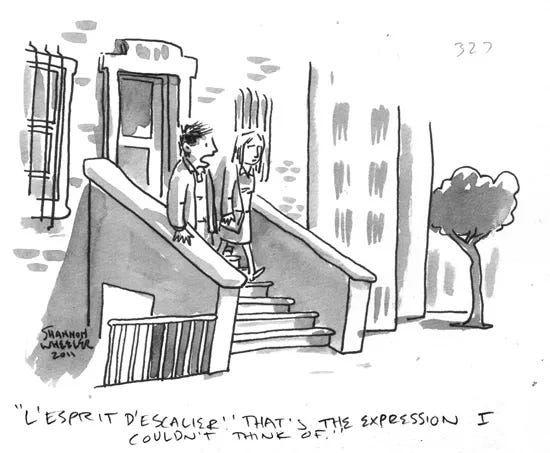Pat F. inquires:
Your theory is that existence is the unity of a thing’s constituents. What I wasn’t entirely clear on is just what those constituents are. In one section of your book, you argue for the real distinction between essence and existence, which gave me the impression that existence was a constituent (rather than, as Miller would say, a component) along with essence (which seems to me the traditional compositional analysis);however, elsewhere you deny existence is a constituent. I am sure the misunderstanding is on my part, but clarification would be most helpful.
My question at the beginning of the book is: What is it for a concrete contingent individual to exist? My cat Max is an example of a concrete individual. Max exists. Nothing can exist without properties. So Max has properties. Some are essential, some are accidental, some are monadic, and some are relational. Take the conjunction of all of these properties and call it the wide essence or quiddity (whatness) of Max. Now one of my claims is that existence is not included in the wide essence of any contingent being. (Max is of course a contingent being which is to say that, although he exists, at every moment at which he exists his nonexistence is possible.) At the same time, though, existence is predicable of Max: 'exists' is an admissible first-level predicate, pace the 'Fressellians.' Barry Miller and I agree about this.
I have said enough to motivate a version of the famous distinctio realis, the real distinction of essence and existence. About anything whatsoever we can ask two different questions: What is it? (Quid sit?) and Is it? (An sit?) In a contingent being (ens), the distinction between what the thing is (wide essence, quiddity) and its existence (esse) is real, meaning that the distinction pertains to the thing (res) itself apart from our modes of considering it. 'Real' in this context does NOT mean that in Max there are two things, one res being the essence, the other res being the existence. That is supposedly what Giles of Rome held, not what Aquinas or I hold.
Analogy: my head and my eyeglasses are really distinct in the Giles-of-Rome way: head and glasses can each exist on its own apart from the other. But the convexity and concavity of a particular lens cannot exist on their own apart from each other. And yet the distinction is real, not projected by us. The real distinction that I espouse is like the distinction between the particular convexity and the particular concavity concavity in a particular lens. 'Like,' not 'the same as.' The real distinction between essence and existence in a contingent being such as an optical lens is sui generis: there is no adequate model for it.
So, to answer the reader's first question, while I do hold to some version of the real distinction, I do not maintain that the existence of a contingent being is a constituent thereof. The existence of a contingent being is not a spatial, temporal, or ontological part of it. It is the contingent unity or contingent togetherness of all of its ontological parts; it could not possibly be one of them. The whole thing exists; the existence of the thing cannot be assigned to one proper part thereof. I believe I call this "The holism of existence" in my book.
To get some idea of what an ontological part might be, consider a bundle theory of ordinary concrete particulars. The ontological parts are the properties, whether universals or tropes, the bundling of which constitutes the particular. The existence of an ordinary particular, Max, for example, would then be the contingent compresence of the properties, where the compresence of the properties is not itself a property. (Exercise for the reader: explain why compresence cannot itself be a property or a relation.)
Now the bundle-approach is not the approach to constituent ontology that I espouse in my book, but it is in some ways similar. In my book I assay ordinary particulars as concrete facts, taking Gustav Bergmann and David Armstrong as inspirations. The latter's thick particulars are facts of the form a's being F, where F is a maximal conjunction of properties and a is a thin particular. On this assay, my beloved Max has as ontological constituents a thin particular and a maximal bunch of properties construed as universals. The existence of Max then turns out to be the peculiar fact-making contingent unity of all of his ontological constituents, a unity that equips him to serve as the truth-maker of all the wonderful truths (true truth-bearers) about him.
There is a problem with this view and it is similar to the mess the hylomorphic constituent ontologists get into when they find that they have to posit materia prima which is, arguably, a Grenzbegriff if not an Unbegriff.






2 responses to “Some Questions about Existence, Part I”